There’s a lot of myths and mixed messages out there when it comes to meditation and breathwork - we’re here to cut through the noise. This space is all about clarity, comfort and doing things in a way that works for you. These FAQs are here to gently guide, not overwhelm.
People often ask…
-
Meditation is a way of bringing your attention to the present moment and shifting from autopilot to awareness. It’s not about clearing your mind or switching off thoughts, it’s about noticing what’s there.
-
Not at all. That is the practice - noticing where your attention goes and gently guiding it back. It’s completely normal to feel distracted or restless at times. Meditation isn’t about getting it “right.” It’s about showing up, noticing and returning. That’s more than enough.
-
Nope. You can sit in a chair, lie down, use a bolster if there is one. You can even stand or walk during some meditations. Movement is welcomed throughout - comfort matters more than the pose.
-
That’s okay. You might not feel different right away - meditation is personal to everyone and it can be a slow build, not a quick fix.
-
It can happen and it probably means your body needs rest. There are some things you can do to help stay alert - making sure the temperature isn’t too warm, holding a small object or if you’re lying down, bending your knees and planting your feet.
-
Not at all. Meditation is for all humans! Especially the anxious, stressed, overwhelmed or overthinking ones. It's a tool, not a personality type.
-
It can happen as meditation can stir up feelings we’ve been holding. If it feels too much, pause. You’re allowed to stop at any time and have some moments to yourself. You’re in always control.
-
Meditation can have immediate benefits, including changes in the brain that support calm and reduce overthinking. Even 1–2 minutes can make a difference. You don’t need a 30-minute routine. Start where you are and go from there.
meditation: you’re not the only one wondering:People often ask…
-
Breathwork is any intentional practice that works with your breathing pattern. Benefits include regulating the nervous system, shifting your mood, releasing tension and improving respiratory health – to name but a few.
-
Yes — but how we breathe changes everything. Among other benefits, conscious breathing shifts our nervous system from the parasympathetic (fight/flight response) to the parasympathetic (rest/relaxation state.) It also activates the vagus nerve to support a sense of calm and safety.
-
There’s no “right” or “wrong” way. Breathwork isn’t about perfection, it’s about awareness. You’ll be guided to move at your own pace, with plenty of space to adjust and listen to your body. What matters is that it feels supportive for you.
-
These sessions use gentle, calming techniques designed to settle the nervous system. Everything is introduced slowly and with clear guidance, so you feel safe and grounded throughout. You’re always welcome to pause or take a break if needed.
-
Some breathwork techniques can bring up physical or emotional sensations, however the ones we use are soothing and gently introduced. You’ll always be guided with care. If anything ever feels too much, you can pause, return to a natural breath or stop completely. You’re always in control.
-
Most gentle practices are safe but some styles may not suit everyone. It’s important to let me know if you’re pregnant, have heart or respiratory conditions, epilepsy, a history of trauma or any other relevant conditions so the session can be adapted for you.
-
Breathwork can have immediate effects and even 2–3 minutes can calm the nervous system and help you feel more grounded. You don’t need a long practice. Start small. Like meditation, consistency matters more than duration.
breathwork: we’ve all wondered these at some point: